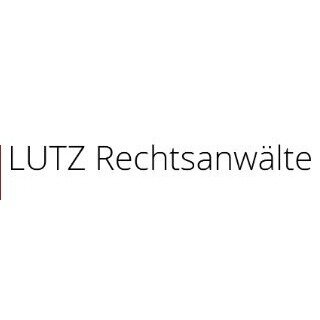Best Debt Capital Markets Lawyers in Stuttgart
Share your needs with us, get contacted by law firms.
Free. Takes 2 min.
List of the best lawyers in Stuttgart, Germany
About Debt Capital Markets Law in Stuttgart, Germany
Debt Capital Markets, commonly known as DCM, involve the issuance and trading of debt securities such as bonds, notes, and other fixed income instruments. In Stuttgart, Germany, the DCM sector is a vital part of the financial landscape, supporting both corporate and public sector financing needs. As the capital of Baden-Wuerttemberg, Stuttgart hosts numerous financial institutions, investment firms, and corporate issuers who regularly access the debt markets. The local market is subject to strict regulatory oversight, ensuring the stability and transparency of transactions, while offering investors and issuers access to critical funding options. Debt Capital Markets law governs all legal aspects of these financial activities, from structuring and issuing bonds to compliance with ongoing disclosure obligations.
Why You May Need a Lawyer
Navigating the Debt Capital Markets can be complex, whether you are a corporate issuer, financial institution, or investor. Common situations where legal assistance becomes essential include:
- Structuring and issuing corporate bonds or debt instruments
- Complying with regulatory and disclosure requirements
- Drafting and reviewing prospectuses and offering memoranda
- Advising on cross-border or international debt offerings
- Dealing with disputes or regulatory investigations related to security issuance or trading
- Understanding tax implications of debt instruments
- Negotiating terms with underwriters, trustees, or investors
- Managing debt restructuring or refinancing
- Ensuring compliance with ongoing securities and listing regulations
An experienced lawyer can help you protect your interests, reduce risks, and ensure that all activities meet legal and regulatory standards.
Local Laws Overview
Debt Capital Markets in Stuttgart are governed by both German and European Union laws. Key legal frameworks include the German Securities Prospectus Act (WpPG), the European Prospectus Regulation, and the German Stock Corporation Act (AktG). Issuers and intermediaries must comply with BaFin (Federal Financial Supervisory Authority) requirements, covering matters such as:
- Preparation and approval of securities prospectuses
- Continuous disclosure and reporting obligations
- Market abuse and insider trading regulations
- Licensing for investment services
- Investor protection rules
- Corporate and tax law aspects related to debt issuance
Stuttgart also hosts the Boerse Stuttgart, one of Europe's largest stock exchanges, which provides a regulated environment for the listing and trading of debt securities. Legal professionals must possess in-depth knowledge of these specific rules and local market practices to guide clients effectively.
Frequently Asked Questions
What is a debt security?
A debt security is a financial instrument representing a loan made by an investor to a borrower, typically in the form of bonds or notes, with a fixed repayment schedule and interest payments.
Who regulates Debt Capital Markets in Stuttgart?
The Federal Financial Supervisory Authority (BaFin) oversees the regulation of Debt Capital Markets in Germany, including entities operating in Stuttgart. The European Securities and Markets Authority (ESMA) also imposes certain requirements.
What is a securities prospectus, and when is it required?
A securities prospectus provides detailed information about the issuer and the securities being offered. It is generally required when offering bonds or other debt securities to the public or seeking a listing on a regulated market.
What are the risks for investors in Debt Capital Markets?
Investors face risks such as credit risk, interest rate risk, market risk, and liquidity risk. Legal advice can help assess and manage these risks before investing.
Can non-German companies issue debt in Stuttgart?
Yes, foreign companies can issue debt securities in Stuttgart, subject to compliance with German and EU prospectus and disclosure regulations.
What should I do if I suspect market abuse or insider trading?
You should report any suspected market abuse or insider trading activities to BaFin or seek advice from a qualified lawyer experienced in securities law.
How long does it take to issue a bond?
The timeline varies but usually ranges from several weeks to several months, depending on the complexity of the transaction and the regulatory approval process.
Do all debt securities need to be listed on a stock exchange?
No, not all debt securities are listed. Some are privately placed, but public offerings or listings on, for example, Boerse Stuttgart, require compliance with additional regulations.
What ongoing obligations do issuers have after a bond issue?
Issuers are required to provide regular financial disclosures, report significant events, and ensure ongoing compliance with market and investor protection rules.
Can individuals invest directly in the Debt Capital Markets in Stuttgart?
Yes, individuals may participate in the market, either directly or via financial intermediaries, but should assess the suitability and risks with the help of legal and financial advisors.
Additional Resources
For further information and assistance regarding Debt Capital Markets in Stuttgart, consider consulting the following resources and organizations:
- Federal Financial Supervisory Authority (BaFin) - the main financial regulatory authority in Germany
- Boerse Stuttgart - one of Europe’s leading exchanges for debt securities
- German Federal Ministry of Finance - provides up-to-date legal texts and policy guidance
- Chamber of Industry and Commerce Stuttgart (IHK Stuttgart) - assists businesses with regulatory compliance
- European Securities and Markets Authority (ESMA) - guides on EU-wide regulations
- Local law firms specializing in financial markets and securities law
- Legal aid and advisory centers for investors and issuers
Next Steps
If you need legal assistance in Debt Capital Markets, consider the following steps:
- Identify your legal needs, such as the type of debt issuance or regulatory compliance issues
- Gather all relevant documents, contracts, or previous correspondence related to your case
- Research and contact an experienced lawyer or law firm in Stuttgart with a proven background in Debt Capital Markets
- Prepare a list of questions and objectives for your initial consultation
- Follow your lawyer’s advice regarding documentation, regulatory filings, and risk assessment
- Stay informed about ongoing obligations and regulatory changes that may affect your activities
Taking timely legal advice can help you navigate the complexities of the Debt Capital Markets, ensuring that your interests are protected, and compliance is maintained at every stage.
Lawzana helps you find the best lawyers and law firms in Stuttgart through a curated and pre-screened list of qualified legal professionals. Our platform offers rankings and detailed profiles of attorneys and law firms, allowing you to compare based on practice areas, including Debt Capital Markets, experience, and client feedback.
Each profile includes a description of the firm's areas of practice, client reviews, team members and partners, year of establishment, spoken languages, office locations, contact information, social media presence, and any published articles or resources. Most firms on our platform speak English and are experienced in both local and international legal matters.
Get a quote from top-rated law firms in Stuttgart, Germany — quickly, securely, and without unnecessary hassle.
Disclaimer:
The information provided on this page is for general informational purposes only and does not constitute legal advice. While we strive to ensure the accuracy and relevance of the content, legal information may change over time, and interpretations of the law can vary. You should always consult with a qualified legal professional for advice specific to your situation.
We disclaim all liability for actions taken or not taken based on the content of this page. If you believe any information is incorrect or outdated, please contact us, and we will review and update it where appropriate.











